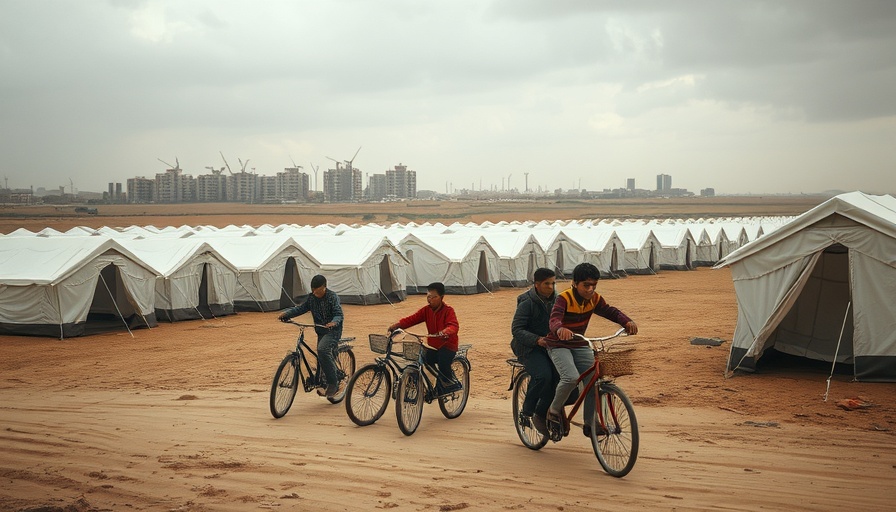
The Tensions Behind the Cease-Fire Negotiations
The ongoing negotiations for a cease-fire between Israel and Hamas have reached a critical juncture. With both sides holding firmly to their demands, understanding the motivations driving these negotiations is essential for grasping the broader conflict. As Hamas deliberates a cease-fire proposal from Arab leaders, Israel is adamant that any agreement includes the dismantling of Hamas’s military capabilities. This tension encapsulates the complexities that stem from nearly two years of conflict, which has wreaked havoc on Gaza and created a humanitarian crisis that the world cannot ignore.
Human Costs: What’s at Stake for Both Sides?
As of now, the estimates of casualties from the conflict are staggering. Tens of thousands of Palestinians have lost their lives over the course of this engagement, which has left much of Gaza in ruins. The implications of continued fighting are dire. For Israelis, ongoing hostilities mean the constant threat of rocket attacks and insecurity. An effective cease-fire could provide both parties a chance for rebuilding and healing—a crucial step toward a more stable future for the region.
Saving Face: The Role of International Mediators
Arab nations playing a mediating role have been tasked with pushing both sides toward agreement. The stakes are high, not just for the nations directly involved but also for regional stability. The United States has expressed its hope that a resolution will come soon, preferably within 24 hours, as President Trump indicated. However, for a lasting peace, guarantees must be solidified—particularly for Hamas. They seek assurances that a cease-fire would not lead to renewed hostilities but rather a path towards peace.
Understanding the Perspective of Hamas
Hussam Dajani, a Palestinian political analyst from Gaza, points out that Hamas’s central aim is to end the war. This is pivotal because it reflects a broader desire within Palestinian factions to halt the violence and devastation. Yet, this intent clashes with Israel's stringent requirements, emphasizing the fundamental disagreements that make negotiations challenging. What Hamas views as necessary security guarantees, Israel interprets as demands that bind their military capabilities.
Future Implications of a Cease-Fire
The outcome of these negotiations will have far-reaching consequences, not just for the immediate parties but for the region as a whole. If Hamas decides to accept the cease-fire offer, it could pave the way for longer-term negotiations. This could involve exploring the possibility of a more permanent resolution aimed at addressing the underlying issues fueling the conflict. On the contrary, if talks fail, the cycle of violence may only escalate further, jeopardizing not only lives but also global diplomatic efforts in the region.
Calls for Local and International Support
In light of the humanitarian situation, there have been appeals for aid from the international community. Organizations focused on resolving conflicts urge nations to step up their support for rebuilding efforts and humanitarian relief. Despite political disagreements, the need for basic human rights and support for those displaced by violence is a universal concern.
As the deadline approaches for Hamas to announce its decision on the cease-fire proposal, the world watches attentively. This moment presents a critical opportunity for change, not only for those suffering daily in conflict but also for the principles of diplomacy and cooperation in an increasingly fraught geopolitical landscape. The ultimate hope lies in transforming this cease-fire from a mere pause in hostilities to a steppingstone toward lasting peace.
 Add Row
Add Row  Add
Add 




 Add Row
Add Row  Add
Add 

Write A Comment